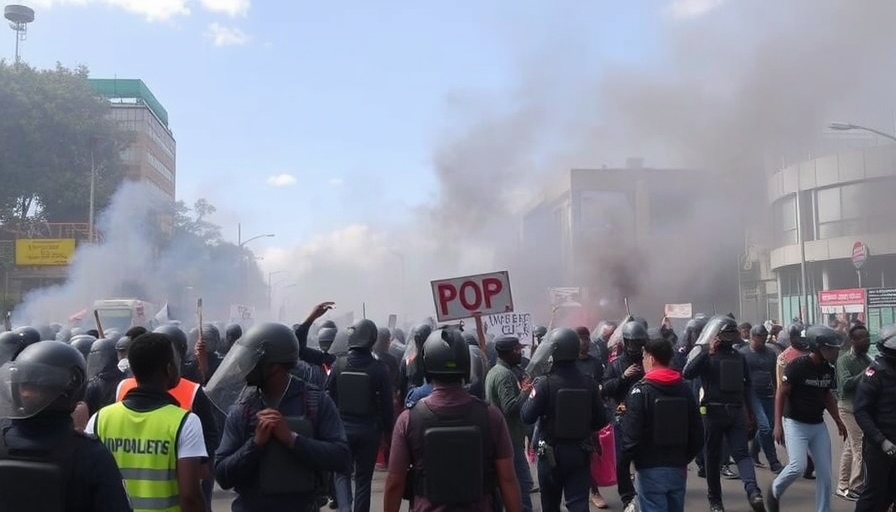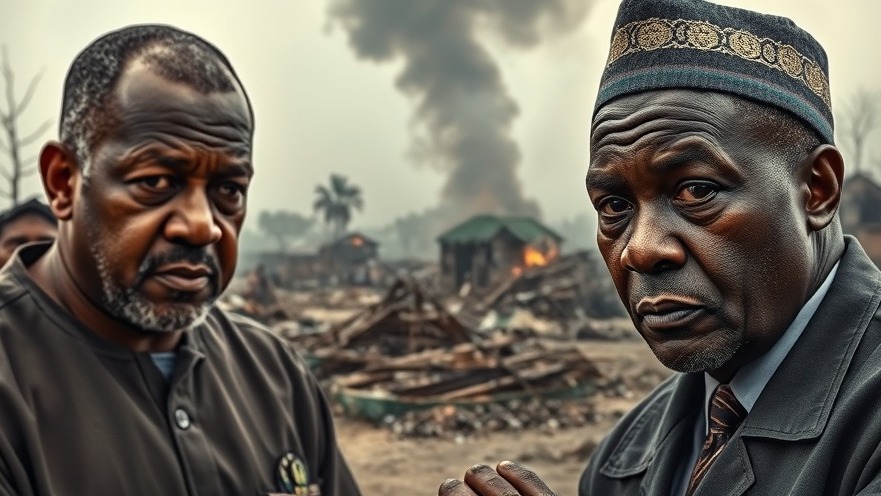
Confrontation at the Heart of Kenya's Protests
In a telling display of political turbulence, demonstrations in Nairobi aimed at expressing dissent against government policies faced significant challenges this week. Protesters encountered not only law enforcement but an organized group reportedly acting as enforcers for the police, complicating the already tense atmosphere. This intervention reveals broader issues within the fabric of governance in Kenya, as civil society's ability to assemble freely comes into question.
The Role of Organized Groups in Political Protests
The participation of these enforcers raises critical questions regarding the legitimacy of state responses to civilian unrest. As reported by multiple eyewitnesses, these groups appeared intent on suppressing any dissent, suggesting a coordinated effort that could undermine democratic processes. Such confrontations have implications far beyond the protestors' immediate plight; they indicate a growing strategy of intimidation that may deter public engagement in political discourse.
Protests Amidst a Shifting Economic Landscape
The backdrop of these protests is significant, as Kenya wrestles with an economic climate marked by volatility and social discontent. The disturbances offer insights into the broader dynamics affecting Africa's economic landscape, with Kenya being an essential player in the continent’s financial and geopolitical spheres. Investors and policymakers must take heed of these developments as they form strategies and policies addressing not just local governance but regional stability and economic growth.
The Impact on Governance and Foreign Relations
As Kenya navigates international relationships, particularly with major partners like the EU and China, the manner in which the government addresses these civic protests could signal its commitment to foundational democratic principles. Observers argue that sustained unrest could complicate Kenya's foreign relations and potentially impact its trade agreements, especially as global entities scrutinize governance practices across Africa.
What This Means for Investors and Policymakers
For investors, the ongoing unrest could deter investment flows into the region, as unstable political climates are often viewed as high risk. Similarly, policymakers must recognize the importance of fostering an environment where citizens feel safe to voice concerns without facing repercussions from state-sponsored groups. By supporting civil liberties, governments can not only strengthen their position domestically but also appeal to foreign investors looking for stable environments.
As these events unfold, it’s crucial for business leaders and scholars to monitor the evolving political narratives in Kenya and their ramifications for the African economy. An understanding of the intersection between governance, public sentiment, and foreign investments will be essential in shaping strategies moving forward.
 Add Row
Add Row  Add
Add 


 Add Row
Add Row  Add
Add 

Write A Comment